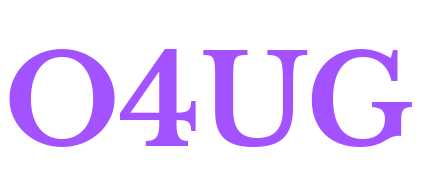Terms of Reference
• At least six (6) years of demonstrated experience in economics, analysing data and conducting research.
• Experience working in applied development economics and poverty modelling
• Familiarity with processes of UNHCR, the World Bank, or other international financial institutions, bilateral development agencies or research institutions.
• Experience leading primary data collection effort and data analysis
• Demonstrated experience with analysis of large datasets.
• Familiarity with displacement and development issues and working on synergies between the humanitarian-development nexus
• Experience of working with the private sector.
• Demonstrated skills and experience with measuring welfare through socio-economic profiling.
• Demonstrated expertise in utilization of relevant statistical software (R, Stata).
• Ability to work independently with limited supervision and deliver high quality products.
• Ability to think creatively, and to explore, harness and translate innovative concepts into relevant practical approaches for programming, policy, and advocacy purposes.
• Excellent concept and proposal writing and presentation skills
Standard Job Description
Economist Organizational Setting and Work Relationships Framed by the Global Compact for Refugees (GCR) and UNHCR¿s mission to find solutions to refugee situations, strengthened cooperation with development and private sector partners is essential. The increasing number of refugees and internally displaced persons in protracted displacement situations, together with the increasing scale of irregular migration, large-scale refugee movements, and costs of responding to humanitarian situations, have placed forced displacement high on the global agenda. These elements have further driven the realization that humanitarian support must be complemented by development and private sector actors to lift displaced populations out of poverty, enable solutions, and encourage an area based approach to poverty reduction. Within UNHCR, the Division of Resilience and Solutions (DRS) was formed to address these challenges, in part by broadening strategic partnerships with key actors in these areas, including importantly the World Bank and other multilateral development banks and in so doing aligning approaches by Government. To support investments by development actors in area based approaches including both forcibly displaced and their hosts, requires better data and standardized information about refugees and host community households, particularly in relation to their socio-economic status or multidimensional poverty status. Accurate data on welfare conditions is also needed UNHCR and partner operational needs including cash, livelihoods, and education programming, welfare targeting and monitoring of the Sustainable Development Goals. Finally, comparable information for both refugees and host community member is a pre-requisite for measuring changes in welfare required to inform medium-term programming with development partners and national governments. DRS together with the World Bank Poverty Global Practice supported by the UNHCR World Bank Joint Data Center manage the partnership and play the global coordination role for the institution in working with National Statistics Offices to include forcibly displaced into National Poverty Assessments. The Economist will contribute to the Global Compact for Refugees (GCR) objectives 1 and 2- Ease the pressures on host countries and Enhance refugee self-reliance. Concretely the Economist will contribute to the indicators measuring the success of the Global Compact for Refugees and particularly the Proportion of refugees living below the national poverty line in the host country. Depending on where the Economist is based the reporting lines will differ. If the Economist is based in Headquarters it will map to the DRS Partnership Analytics Research and Knowledge (PARK) section. If the Economist is based in a country or regional office, the Economist will report to either the Representative or Deputy Representative Programme, or in some cases Head of Sub-Office or Senior Operations Officer. In all cases a dotted line will be to DRS PARK for technical functional clearance of candidates and for technical oversight of economics products. The Economist will work closely with Programme and Protection colleagues in addition to Senior Management in the operation as well as Bureaux and technical unit key external stakeholders and development agencies, including the World Bank, government agencies, national statistical agencies, and other operational partners.
MORE JOB DETAILS & APPLICATION PROCEDURE >>>
